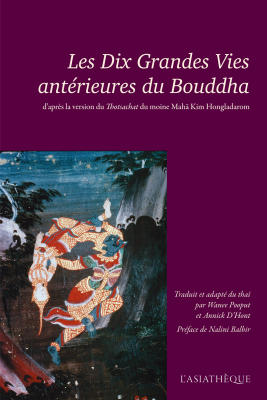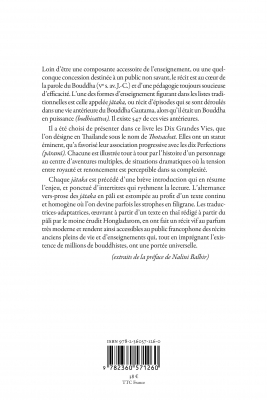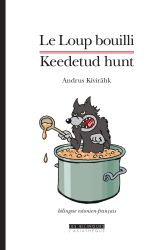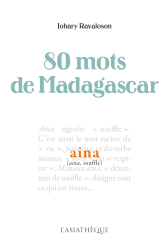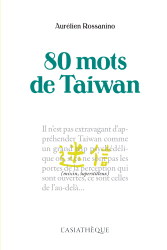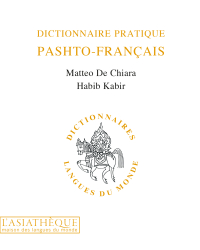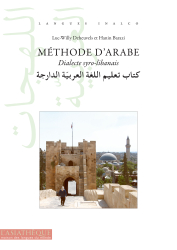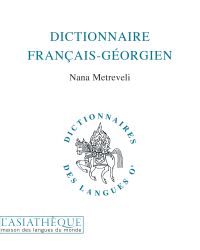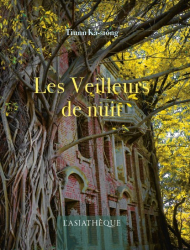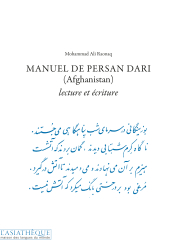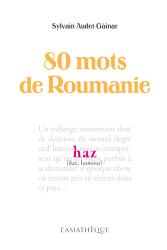Details
Format: Paperback
ISBN: 9782360571260
Collection: L’Asiathèque Littérature
16 x 24 cm
Weight: 1280 gr
Pages: 732
First publication: 29/08/2018
Last printing: 08/2018
Anonymous
Les dix Grandes Vies antérieures du Bouddha
d'après la version du Thotsachat du moine Maha Kim Hongladarom
Translation: Annick D'Hont, Wanee Pooput
Ten stories full of life and teachings with universal reach
Far from being an accessory component of teaching, or any concession intended for a non-learned audience, there is a story at the heart of the Buddha's words (5th century BC) and of a pedagogy always concerned with efficiency. One of the forms of teaching found in traditional lists is that called jātaka, or the recounting of episodes that took place in a previous life of Gautama Buddha, when he was a potential Buddha (bodhisattva). There are 547 of these past lives. It was chosen to present in this book the "ten great lives" that are referred to in Thailand as "Thotsachat". They have an eminent status, which has favored their progressive association with the ten Perfections (pāramī). These are ten cardinal virtues or ten ideal behaviors, which are, according to Thai tradition: renunciation, courage, compassion, steadfast faith, wisdom, moral conduct, patience, equanimity, l honesty and giving. Each one is illustrated in turn by the story of a character at the center of multiple adventures, of dramatic situations where the tension between royalty and renunciation is perceptible in its complexity: Temiya, Mahājanaka, Suva.n .nasāma, Nemirāja, Mahosadha , Bhūridatta, Candakumāra, Nārada, Vidhura and Vessantara are the protagonists of true literary works abounding in ballads, debates, descriptions, animated dialogues which are not stereotypical. Each jātaka is preceded by a brief introduction, which summarizes the issue, and punctuated by sub-titles that punctuate the reading. The verse-prose alternation of the Pali jātaka is blurred in favor of a continuous and homogeneous text in which one can sometimes guess the filigree stanzas.
CONTRIBUTORS' BIOGRAPHIES
Wanee Pooput
Wanee Pooput, born in Thailand, has lived in France since 1960. Now retired, specialist in the Thai language and confirmed teacher, she was a lecturer at the National Institute of Oriental Languages and Civilizations.
TABLE OF CONTENTS
Préface de Nalini Balbir (Preface by Nalini Balbir)
Avant-propos (Foreword)
Tableau des Trois Mondes (Table of the Three Worlds)
Introduction
Note liminaire (Introductory note)
TE CHA SU NE MA PHU CA NA WI WE
Les dix vies – récits (The Ten Lives – Stories)
1. Temiya – le bodhisattva du renoncement (. Temiya – the bodhisattva of renunciation)
Le sermon du Bouddha à Chettawan (The Buddha's Sermon in Chettawan)
Le royaume menacé de disparition (The kingdom threatened with disappearance)
Intervention d’indra (Intervention of indra)
Temiya renonce au trône (Temiya renounces the throne)
Renoncement jour après jour (Renunciation day after day)
À l’âge d’un an (At the age of one)
À l’âge de deux ans (At the age of two)
À l’âge de trois ans (At the age of three)
À l’âge de quatre ans (At the age of four)
À l’âge de cinq ans (At the age of five)
À l’âge de six ans (At the age of six)
À l’âge de sept ans (At the age of seven)
À l’âge de huit ans (At the age of eight)
À l’âge de neuf ans (At the age of nine)
À l’âge de dix ans (At the age of ten)
À l’âge de douze ans (At the age of twelve)
À l’âge de treize ans (At the age of thirteen)
À l’âge de quatorze ans (At the age of fourteen)
À l’âge de quinze ans (At the age of fifteen)
À l’âge de seize ans (At the age of sixteen)
L’avis des brahmanes (The opinion of the Brahmins)
Sept jours de règne (Seven days of reign)
Exécution de la sentence (Enforcement of the award)
Tout est accompli (Everything is accomplished)
Victoire du Bodhisattva (Victory of the Bodhisattva)
Apparition céleste (Celestial apparition)
Le dharma réalisé (Dharma realized)
À la rencontre du Bodhisattva (Meet the Bodhisattva)
Homélie au roi (Homily to the King)
Le roi Samon (King Samon)
Fin du sermon – Les différentes réincarnations (End of the sermon – The different reincarnations)
2. Mahāchanok – le bodhisattva du courage (2. Mahāchanok – the bodhisattva of courage)
Le sermon du Bouddha à Chettawan (The Buddha's Sermon in Chettawan)
Un royaume partagé (A shared kingdom)
La guerre (The war)
Intervention d’indra (Intervention of indra)
Le refuge (The refuge)
Mahāchanok (Mahāchanok)
À la reconquête du royaume (Reconquering the kingdom)
Intervention de la déesse Mekkhala (Intervention of the goddess Mekkhala)
La royauté reconquise (Royalty reconquered)
Le choix d’un roi (The choice of a king)
Le Bodhisattva entre en lice (The Bodhisattva enters the race)
Le Bodhisattva est consacré roi (The Bodhisattva is consecrated king)
Les dons du Bodhisattva se manifestent (The Bodhisattva's gifts are manifested)
Le Bodhisattva rend grâce (The Bodhisattva gives thanks)
Hommage au roi (Tribute to the King)
La magie du courage (The magic of courage)
Le règne de Mahāchanok (The reign of Mahāchanok)
Le renoncement (Renunciation)
Les deux manguiers (The two mango trees)
Le désir (Desire)
La réflexion (Reflection)
L’entrée en méditation (Entering meditation) La population se sent orpheline (The population feels orphaned)
L’adresse aux Bouddha pacceka (The address to the Buddha pacceka)
Méditation sur les merveilles à quitter (Meditation on wonders to leave)
La fin du règne (The end of the reign)
Sivali se met en travers (Sivali gets in the way)
Désespoir de la reine (Despair of the Queen)
Tristesse du peuple (Sadness of the people)
Inébranlable (Unshakable)
Premier stratagème (First ploy)
Autre ruse pour retenir l’époux (Another ruse to restrain the husband)
Un lien à détacher, une route à couper (A link to detach, a road to cut)
Soutien de deux ermites (Support from two hermits)
Tenace et résolu (Tenacious and resolute)
Éloge du renoncement (Praise of renunciation)
La jeune fille aux bracelets (The girl with the bracelets)
L’arbalète (The crossbow)
Le couronnement du courage (The Crowning of Courage)
Offrandes au Bodhisattva (Offerings to the Bodhisattva)
Nostalgie (Nostalgia)
Fin du sermon – Les différentes réincarnations (End of the sermon – The different reincarnations)
3. Suwannasam – le bodhisattva de la compassion (3. Suwannasam – the bodhisattva of compassion)
Le sermon du Bouddha à Chettawan (The Buddha's Sermon in Chettawan)
Les chasseurs (Hunters)
Les Nesatha (The Nesatha)
Les noces (The wedding)
La crainte des enfers (The fear of hell)
Le départ (Departure)
Indra (Indra)
Une vie d’ermite (A hermit's life)
Un mauvais karma (Bad karma)
Suwannasam le compatissant (Suwannasam the Compassionate)
Le karma se réalise (Karma is realized)
Merveilleux malheur (Wonderful misfortune)
Le yaksa (The yaksa)
Orgueil du yaksa (The pride of yaksa)
La rencontre (The meeting)
Le yaksa décoche sa flèche (The yaksa unleashes its arrow)
Remords (Remorse)
La compassion triomphe (Compassion triumphs)
Pouvoir des pāramī (Power of the pāramī)
Fin du sermon – Les différentes réincarnations (End of the sermon– The different reincarnations)
4. Nemirat – le bodhisattva de la foi résolue (4. Nemirat – the bodhisattva of resolute faith)
Le sermon du Bouddha à Mithila (The Buddha's Sermon in Mithila)
Une dynastie en danger (A dynasty in danger)
De père en fils (From father to son)
Le roi Makha redescend sur terre (King Makha descends to earth)
Le bodhisattva Nemirat, roi de Mithila (Bodhisattva Nemirat, king of Mithila)
Intervention d’indra (Intervention of indra)
Les terres de la condition fortunée (The lands of the wealthy condition)
Le karma d’Indra (Indra's Karma)
Visite des enfers et des cieux (Visit to the underworld and heaven)
Nemirat invité par les divinités (Nemirat invited by the deities)
Invitation d’Indra (Indra's invitation)
En route vers les enfers et les paradis (On the way to hell and paradise)
Les premiers enfers – La rivière Wekhataraninathi (The first hells- the Wekhataraninathi river)
D’autres enfers – les chiens féroces (Other hells- the ferocious dogs)
D’autres enfers – les pieux brûlants (Other hells- the burning stakes)
D’autres enfers – les charbons ardents (Other hells- the hot coals)
Les enfers Lohakumphi (The Lohakumphi Underworld)
Les enfers Ayothaka (The Ayothaka Underworld)
Les enfers Chala (The Chala Underworld)
D’autres enfers – les armes perforantes (Other hells- piercing weapons)
D’autres enfers – les chaînes rougies au feu (Other hells - red iron chains)
Les enfers Khutha (The Khutha Underworld)
Les enfers nauséabonds (The foul, oderous Underworld)
Les enfers Usuttha (The Usuttha Underworld)
Les enfers des femmes infidèles (The Underworld of unfaithful women)
Les enfers des hommes adultères (The Underworld of adulterous men)
Quelle leçon tirer de ces visions ? (What lesson can be drawn from these visions?)
Changement de direction (Change of direction)
L’esclave devenue divinité (The slave turned deity)
Les sept pavillons d’or (The seven golden pavillions)
Des pavillons de cristal (The crystal pavillions)
Un pavillon en lapis-lazuli ( A lapis lazuli pavillion)
Un pavillon d’or (A golden pavillion)
Le royaume d’Indra (The kingdom of Indra)
Nemirat aspire à accéder au monde de Brahma (Nemirat aspires to access the world of Brahma)
Accueil des divinités (Reception of the deities)
De retour à Mithila (Back to Mithila)
Renoncement (Renunciation)
Fin du sermon – Les différentes réincarnations (End of the sermon – The different reincarnations)
5. Mahosot – le bodhisattva de la sagesse (5. Mahosot – the bodhisattva of wisdom)
Le sermon du Bouddha à Chettawan (The Buddha's Sermon in Chettawan)
Naissance d’un sage au royaume de Mithila (Birth of a wise one in the kingdom of Mithila)
Naissance (Birth)
À l’âge de sept ans (At the age of seven)
Mahosot, sagesse du Bodhisattva (Mahosot, wisdom of Bodhisattva)
Vol d’un faucon (Flying falcon)
Un boeuf volé (A stolen ox)
Le collier (The necklace)
La pelote de coton (The cotton ball)
La mère et l’enfant (The mother and the child)
L’épouse infidèle (The unfaithful spouse)
Indra intervient (Indra's intervention)
Le morceau de bois (The piece of wood)
Les deux têtes (The two heads)
Les deux serpents (The two snakes)
Le coq (The rooster)
Le boeuf au gros ventre (The ox with a big belly)
Le riz royal (Royal rice)
La balançoire royale (The Royal Swing)
L’étang Bokkhorani (Bokkhorani Pond)
Le parc royal (The Royal Park)
La pierre précieuse égarée (The lost gemstone)
Le caméléon (The chameleon)
Mahosot au secours de la reine (Mahosot to the queen's aid)
Mahosot au secours des sages (Mahosot to the aid of the wise)
L’homme riche et l’homme intelligent (The rich man and the intelligent man)
Éloge de l’intelligence (Praise of intelligence)
Le mariage de Mahosot (Mahosot's wedding)
Rancoeur de Senaka (Resentment of Senaka)
Intervention de la divinité (The divine intervention)
Siégeant sous le parasol royal (Sitting under the royal parasol)
Le nouveau stratagème des quatre sages (The new ploy of the four wise men)
Mahosot et les relations extérieures (Mahosot and external relations)
Le perroquet Suwapodok (The Parrot Suwapodok)
Le roi Chulani Phromathat et son conseiller Kewat (King Chulani Phromathat and his advisor Kewat)
La guerre à Mithila (The war in Mithila)
Sagacité d’une reine (Sagacity of a queen)
Le siège de la capitale (The seige of the capital)
Deux sages décident de la victoire (Two wise men decide victory)
Le siège reprend. Nouveaux stratagèmes (The siege resumes. New schemes)
La guerre à nouveau (War again)
Le piège Mahosot se méfie (The Mahosot trap is wary)
Mahosot en disgrâce (Mahosot in disgrace)
La mission de Mahosot (The mission of Mahosot)
Mahosot et la reine mère (Mahosot and the queen mother)
Mahosot, Kewat et les grands dignitaires (Mahosot, Kewat and the great dignitaries)
Construction du tunnel (Construction of the tunnel)
Le mariage (The marriage)
Dernier combat, dernières ruses (Last fight, last tricks)
Visite du tunnel (Visit of the tunnel)
Réconciliation (Reconciliation)
Mahosot victorieux revient à Mithila (Mahosot victorious returns to Mithila)
Heureux épilogue (Happy epilogue)
Le nouveau royaume de Mahosot (The New Kingdom of Mahosot)
La bonzesse Paripphachi (The paripphachi monk)
Mahosot soupçonné de complot (Mahosot suspected of conspiracy)
Soutien de la bonzesse Paripphachi (Support of the monk Paripphachi)
Suprême intelligence (Supreme intelligence)
Fin du sermon – Les différentes réincarnations (End of the sermon – The different reincarnations)
6. Phurithat – le bodhisattva de la conduite morale (6. Phurithat – the bodhisattva of moral conduct)
Le sermon du Bouddha à Chettawan (The Buddha's Sermon in Chettawan)
Alliance avec les nāga (Alliance with the nāga)
Une nāga (A nāga)
L’étang Bokkhorani (Bokkhorani Pond)
Chez le roi Phromathat (At the home of Phromathat)
Le bodhisattva (Bodhisattva)
Phurithat (Phurithat)
Indra et le Bodhisattva (Indra and the Bodhisattva)
Le départ du Bodhisattva (The departure of the Bodhisattva)
Les chasseurs (The shoes)
Le garuda et les brahmanes (The garuda and the Brahmins)
La pierre qui exauce les désirs (The stone that fulfills desires)
Trahison (Betrayal)
Fidélité de Somathat (Somathat Loyalty)
La capture et le martyre (Capture and martyrdom)
Une mère désespérée (A desperate mother)
Solidarité familiale (Family solidarity)
Réunion de famille (Family reunion)
Retour au royaume des nāga (Return to the kingdom of the nāga)
Suphokha (Suphokha)
Kanarit, défenseur des brahmanes et de leur doctrine
Le Bodhisattva prêche le dharma
La famille rassemblée
Fin du sermon – Les différentes réincarnations
7. Chantha Kuman – le bodhisattva de la patience
Le sermon du Bouddha au mont Khitchakut
Le roi et le brahmane (The king and the brahman)
Le brahmane Kanthahala (The Brahmin Kanthahala)
Rêve prémonitoire du roi (Premonitory dream of the king)
Vengeance du brahmane éconduit (Revenge of the dismissed)
Offrande au feu (Fire offering)
Les quatre fils (The Four Sons)
Les quatre princesses (The Four Princesses)
Les quatre reines (The Four Queens)
Les quatre notables (The Four Notables)
Les quatre éléphants, les quatre chevaux et les quatre boeufs (The four elephants, the four horses and the four oxen)
Doléances des dignitaires (Grievances of dignitaries)
La reine mère (The Queen Mother)
Le père du roi (The King's Father)
Patience du Bodhisattva (Patience of the Bodhisattva)
Le roi cède une première fois (The king gives in for the first time)
Le brahmane réagit (The Brahmin reacts)
Deuxième supplication du Bodhisattva (Second supplication of the Bodhisattva)
Émotion (Emotion)
Troisième plaidoyer du Bodhisattva (Third plea of the Bodhisattva)
Le sacrifice au feu (Sacrifice in fire)
Nouveau revirement du monarque (New reversal of the monarch)
La reine Khotami, mère du Bodhisattva (Queen Khotami, mother of the Bodhisattva)
Ultime supplication du Bodhisattva (Final supplication of the Bodhisattva)
L’épouse (The wife)
Exécution de la sentence (Enforcement of the sentence)
Intervention d’Indra (Intervention of Indra)
Le couronnement de Chantha Kuman (The coronation of Chantha Kuman)
Fin du sermon – Les différentes réincarnations (End of the sermon – The different reincarnations)
8. Nāratha – le bodhisattva de l’équanimité (8. Nāratha – the bodhisattva of equanimity)
Le sermon du Bouddha à Rachakhru (The Buddha's Sermon in Rachakhru)
Le roi Angkhati (King Angkhati)
Jour de fête (Feast day)
Les vues fausses de Khunachiwaka (The false views of Khunachiwaka)
La princesse Rucha Karma de la princesse (Princess Rucha Karma of the Princess)
Le bodhisattva (The Bodhisattva)
Nāratha (Nāratha)
Horreur des enfers (Horror of the underworld)
Félicité des Terres célestes (Felicity of the Heavenly Lands)
Votre corps, un char royal (Your body, a royal chariot)
Fin du sermon – Les différentes réincarnations (End of the sermon – The different reincarnations)
9. Withoun – le bodhisattva de l’honnêteté (9. Withoun – the bodhisattva of honesty)
Le sermon du Bouddha à Chettawan (The Buddha's Sermon in Chettawan)
Le sage Withoun et les quatre grands rois (The wise Withoun and the four great kings)
Quatre amis Renaissance (Four Renaissance Friends)
Une rencontre entre amis (A meeting among friends)
Controverse (Controversy)
Le sage apporte la paix (The wise brings peace)
Grâce est rendue au Bodhisattva (Thanks is given to the Bodhisattva)
Au royaume des nāga (In the kingdom of the nāga)
Le désir de l’épouse (The desire of the wife)
La fille, instrument de la réalisation du désir (The girl, instrument of the realization of desire)
Le yaksa et la princesse nāga (The yaksa and the nāga princess)
Chez le grand yaksa (At the great yaksa)
Le jeu de saka (The game of saka)
Le roi Thananchaïkhorop (King Thananchaikhorop)
Le cheval magique (The Magic Horse)
La pierre magique (The magic stone)
La partie (The part)
Les pāramī (The pāramī)
Le don du dharma (The Gift of Dharma)
Intermède (Interlude)
Dernier enseignement du Bodhisattva à ses enfants (Last teaching of the Bodhisattva to his children)
Comment servir le roi (How to serve the king)
Les adieux (Farewell)
Fermeté du Bodhisattva (Firmness of the Bodhisattva)
Les sujets du roi Thananchaïkhorop (The subjects of King Thananchaikhorop)
Supplice du Bodhisattva (Torture of the Bodhisattva)
Le Bodhisattva prêche le dharma au yaksa (Bodhisattva preaches the dharma to yaksa)
Repentir du yaksa (Repentance of the yaksa)
Le Bodhisattva livre son coeur au grand nāga (The Bodhisattva delivers his heart to the great nāga)
La reine Wimala est comblée (Queen Wimala is delighted)
Repentir du yaksa (Repentance of the yaksa)
Triomphe du Bodhisattva (Triumph of the Bodhisattva)
Un mariage béni (A blessed marriage)
Fin du sermon – Les différentes réincarnations
10. Wessandorn – le bodhisattva du don (10. Wessandorn – the bodhisattva of giving)
Chant I : Les dix voeux (Song I: The Ten Vows)
Chant II : Himaphan (Song II: Himaphan)
Chant III : Le don (Song III: The Gift )
Chant IV : En forêt (Song IV: In the forest )
Chant V : Chuchok (Song V: Chuchok )
Chant VI : La petite forêt (VI: The Little Forest )
Chant VII : La grande forêt (Song VII: The Great Forest )
Chant VIII : Les enfants princiers (Song VIII: The Princely Children )
Chant IX : La reine Matsi (Song IX: Queen Matsi Song)
Chant X : Indra (Song X: Indra)
Chant XI : Le grand monarque (XI: The Great Monarch)
Chant XII : Les six membres de la famille royale (XII: The six members of the royal family)
Chant XIII : La capitale (Song XIII: The Capital)
Fin du sermon – Les différentes réincarnations (End of sermon - the different reincarnations)
Annexes
Indra
Nipphan
Glossaire (Glossary)
Bibliographie (Bibliography)
Table des illustrations (Table of illustrations)
